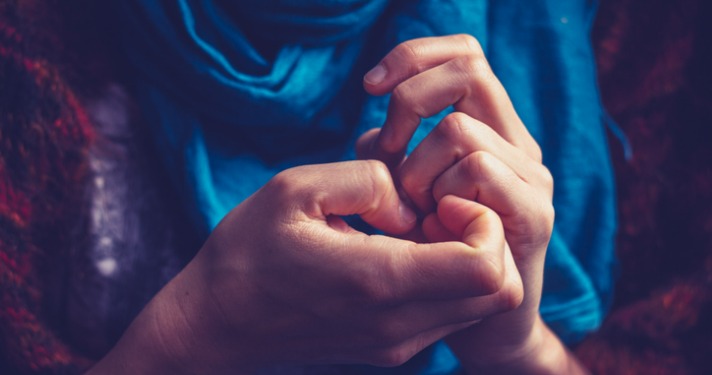What is Anxiety?
Published by MAXSolutions on February 23, 2023

Everybody experiences anxiety from time to time.
When anxiety starts to impact your ability to function in important areas of your life: relationships, work and social settings, it is probably time to seek help and support.[1]
Anxiety disorders affect 1 in 4 Australians at some stage in their lives.
According to the Australian Bureau of Statistics’ National Study of Mental Health and Wellbeing, Anxiety was the most common group of mental disorders (16.8% or 3.3 million people) that people had experienced in the previous 12 months.
Types of anxiety
There are several kinds of anxiety disorders[3]:
Generalised Anxiety Disorder: excessive, uncontrollable worry about many different everyday issues in more than one important area of functioning.
Social Anxiety Disorder: excessive fear of social situations causing people to go to great lengths to avoid them.
Panic disorder: regular experiences of intense fear, severe enough that the person experiencing them may believe they are about to die.
Agoraphobia: avoiding specific situations due to fear of having a panic attack.
Specific phobias: irrational fears that only apply to one specific situation, such as a fear of objects, animals, places or people.
Obsessive-compulsive disorder (OCD): unwanted thoughts and impulses (obsessions), causing repetitive, routine behaviours as a way of coping with anxiety.
Post-traumatic stress disorder (PTSD): when feelings of fear do not fade after experiencing a traumatic life event.
Even if your anxiety isn’t severe enough for you to meet diagnostic criteria[3], it can still have a distressing impact on you.
Symptoms of anxiety
Common symptoms of anxiety include:
Heart racing
Intense feelings of fear or panic
Excessive worry or dread
Avoidance of situations that heighten anxiety
The belief that you are in danger
Difficulty concentrating due to anxiety
Difficulty sleeping
Appetite changes
Shortness of breath
Lightheadedness
Sweating
There are many things that can contribute to the development of an anxiety disorder, including family history, life events and substance use.
How can I reduce my anxiety?
You can reduce your experience of anxiety[4] through a variety of behavioural changes:
Exercise is the best and most helpful thing you can do, even if it is only a little.
Eating well
Cutting down on caffeine, limiting alcohol, products containing nicotine or other drugs.
Sleeping well.
Relaxation such as meditation, mindfulness or breathing techniques.
Distraction techniques
Engaging in activities you enjoy
It is also a good idea to get help from your EAP. Call 1800 629 277 in Australia and 0800 327 669 or email support@maxsolutions.com.au
References
1.Anxiety - symptoms, treatment and causes | healthdirect
2.National Study of Mental Health and Wellbeing, 2020-21 | Australian Bureau of Statistics (abs.gov.au)
3. American Psychiatric Association. (2013). Diagnostic and statistical manual of mental disorders (5th ed.). https://doi.org/10.1176/appi.books.9780890425596. Text citation: (American Psychiatric Association, 2013)
4. Managing and treating anxiety - Better Health Channel
Share
Tags
Found this useful?
Help and advice
Our blogs are about helping people seek the information that they need for their steps in the workforce.














_1.jpg)





























.jpeg)

















